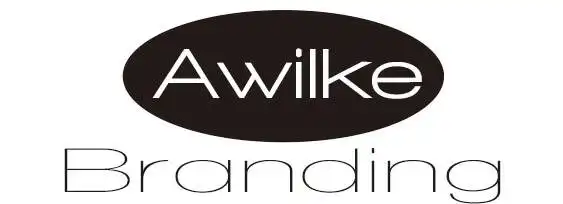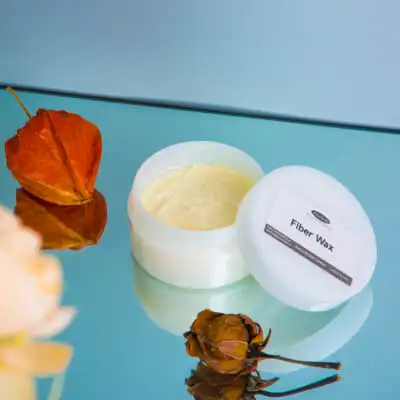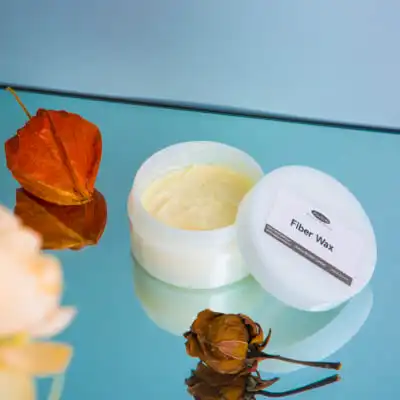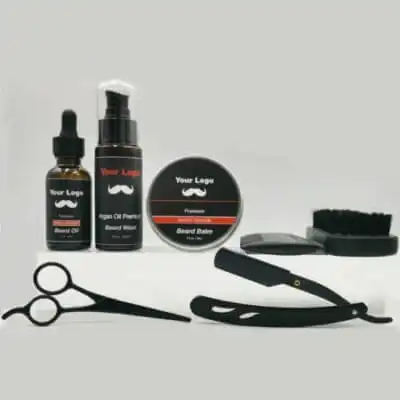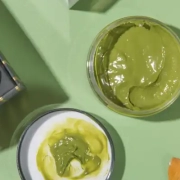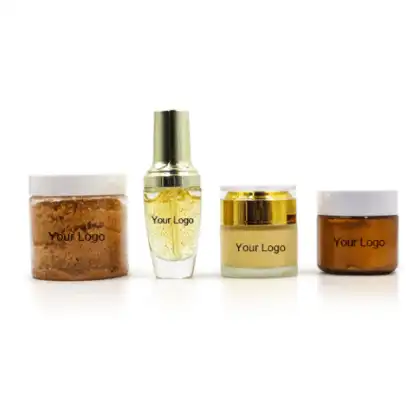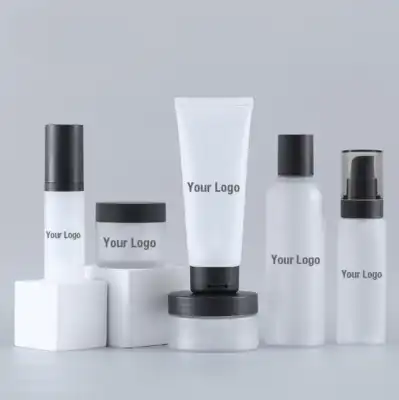5 Key Benefits of Partnering with a Manufacturer for Your Skincare Line

Imagine stepping into the vibrant world of skincare entrepreneurship, envisioning a lineup of products that not only dazzle the senses, but also redefine the standards of excellence. Launching your own skincare line is a journey marked by creativity, innovation, and, of course, a myriad of challenges. However, what if there was a strategic ally ready to transform those challenges into triumphs?
Enter the game-changing strategy: partnering with an experienced private label manufacturer.
Let’s delve into the five key benefits!
Key Takeaways✔️ Partnering with a manufacturer streamlines tasks like formulating, mixing, and packaging. ✔️ Skilled manufacturers excel in supply chain management, adeptly sourcing raw materials, managing inventory, and coordinating logistics. ✔️ Bulk production reduces per-unit costs, providing cost efficiency and consistent product quality. ✔️ Manufacturers bring expertise in formulation, ensuring product efficacy and safety through precise blending of various ingredients. ✔️ Manufacturers mitigate risks by addressing formulation challenges, market uncertainties, regulatory compliance, and supply chain disruptions |
What is a Private Label Manufacturer?
These professionals bring expertise in formulating, mixing, and packaging, streamlining the entire production process. Manufacturers play a crucial role in navigating the complexities of skincare product development, ensuring that formulations not only meet regulatory standards but also deliver tangible benefits to consumers. From sourcing high-quality ingredients to adhering to regulatory compliance, manufacturers are equipped to handle the intricacies of the skincare industry.
Essentially, they serve as the backbone of your skincare venture, enabling you to focus on the creative and strategic aspects of your brand while entrusting the production intricacies to seasoned experts.
So, why would businesses in the skincare industry partner with a manufacturer?
There are multiple advantages, and here are some of them:
1. Manufacturers Remove the Burden of Production
Launching a skincare line involves numerous challenges, and handling the production process can be overwhelming. By partnering with a private label manufacturer, you alleviate the burden of production, allowing you to focus on other critical aspects of your business.
Here are two ways a skilled manufacturer can remove the burden of production from you:
Streamlined Production Processes
Launching a skincare line involves navigating a multitude of challenges, and the intricacies of the production process can quickly become overwhelming. However, by forging a partnership with a skilled manufacturer, you open the door to a range of benefits that significantly alleviate the burden of production. One key advantage lies in the manufacturer’s ability to implement streamlined production processes. These companies have honed and optimized their procedures, allowing for efficient handling of tasks such as formulating, mixing, and packaging.
Supply Chain Management Expertise
Another pivotal aspect where a skilled manufacturer proves invaluable is in supply chain management. Establishing and maintaining a robust supply chain can be a complex undertaking, but manufacturers are well-equipped to handle this challenge.
In-House Production vs. Partnering With a Manufacturer
| Aspect | In-House Production | Partnering With a Manufacturer |
| Production Control | Full control over the production process. | Relinquishes day-to-day control but gains specialized expertise. |
| Initial Investment | High initial investment in facilities, equipment, and staff. | Lower upfront costs as manufacturing infrastructure is already in place. |
| Flexibility | Limited flexibility in adapting to market changes. | Greater flexibility to adapt quickly to market trends and demands. |
| Time Efficiency | Longer lead times due to setting up and managing production. | Shorter lead times, leveraging the manufacturer’s streamlined processes. |
| Expertise | Requires hiring and training staff for various production tasks. | Access to manufacturer’s expertise in formulation, production, and compliance. |
| Quality Control | In-house quality control but may lack industry-specific expertise. | Manufacturer’s stringent quality control with industry know-how. |
| Scaling Production | Expensive and time-consuming to scale production internally. | Easier scalability with manufacturers, accommodating increased demand. |
| Risks | In-house production bears the full responsibility of production-related risks. | Shared responsibility, with manufacturers mitigating production risks. |
So which method of production is right for you?
If you’re establishing a skincare product line, or if you’re new to the industry, it’s best to partner with an experienced manufacturer. It’s a cost-effective, time-efficient, and risk-mitigated path to kickstart your skincare business journey.
2. Manufacturers Bring Experience and Expertise to Newer Businesses
Manufacturers bring a wealth of expertise and experience to the table. Leveraging their knowledge ensures your skin care products meet industry standards and consumer expectations.
Traits that Determine a Trusted Manufacturer
Here, we delve into the specific kinds of expertise and experience that an expert manufacturer brings to the table.
Formulation Mastery

An adept manufacturer excels in the art and science of formulation. This involves the precise blending of various ingredients to create skincare products that not only meet regulatory standards but also deliver tangible benefits to consumers. Whether it’s formulating anti-aging serums, hydrating creams, or specialty treatments, manufacturers with expertise in skincare formulation ensure the efficacy and safety of your products.
Ingredient Knowledge

Navigating the vast array of skincare ingredients requires a deep understanding of their properties, interactions, and potential benefits. Expert manufacturers boast extensive knowledge about diverse ingredients, ranging from time-tested classics to cutting-edge innovations.
Market Insight

Seasoned manufacturers have a keen understanding of market trends and consumer preferences. Their experience in the industry provides valuable insights into what works and what doesn’t. By tapping into their market intelligence, you gain a strategic advantage in crafting skincare products that are not only of high quality, but also align with current market demands. This foresight minimizes the risk of developing products that may miss the mark with consumers.
Is your partnered manufacturer an expert in the skincare industry?
Here are some signs to help you determine their expertise:
Positive Reviews
Positive feedback from other brands or clients is a good indicator of their expertise and reliability. Check for testimonials and reviews to gauge their reputation in the industry.
Transparent Communication
An expert manufacturer communicates clearly, providing information about processes, ingredients, and potential challenges. Transparent communication is crucial for a successful partnership, ensuring you stay informed throughout the production process.
Innovation
An expert manufacturer stays updated with the latest trends and incorporates innovative technologies into their products. Their commitment to innovation demonstrates a proactive approach to meeting consumer demands and staying ahead in the competitive skincare market.
Portfolio of Satisfied Clients
A reputable manufacturer should have a portfolio of satisfied clients. This showcases their ability to meet the needs and expectations of various brands, indicating a track record of successful partnerships.
3. Manufacturers Unlock the Advantages of Bulk Production
Opting for bulk production, characterized by manufacturing products in large quantities, offers distinct advantages that contribute to the efficiency and success of your skincare line. Here are some of those advantages:
Why Bulk Production Is Usually More Efficient
Cost Efficiency
Bulk production of items means lesser production costs, according to the concept known as economies of scale. This concept is achieved because bulk production allows your manufacturer to spread fixed costs, like machinery and labor, across a larger number of units. When manufacturing a higher quantity of products, these fixed costs per unit decrease, resulting in a more efficient and cost-effective production process.
Scalability
Bulk production provides a scalable model for your skincare business. As your brand gains popularity and experiences increased demand, the ability to scale production seamlessly is a significant advantage.
Consistent Quality
Maintaining consistent product quality is essential for the success and reputation of any skincare brand. Bulk production enhances the likelihood of achieving uniformity in product quality across all units.
Low Minimum Order Requirement
One notable aspect of bulk production, especially when partnering with reliable manufacturers, is the low minimum order requirement. This feature allows you to place orders for a smaller quantity of units, providing flexibility in your inventory management and facilitating the testing of new products. Working with reputable manufacturers ensures that even starter brands can benefit from the advantages of bulk production.
Best-Selling Skincare Products for Bulk Production
While bulk production with a manufacturer or factory partner offers efficiency, not all skincare products are equally suited for this manufacturing approach. Some skincare items are well-aligned with the advantages of bulk production. Here are some of them:
Basic Cleansers
Cleansers with straightforward formulations and commonly used ingredients lend themselves well to bulk production. These products, often part of daily skincare routines, can be efficiently manufactured in large quantities.
Lotions and Moisturizers
Everyday skincare essentials like lotions and moisturizers, characterized by stable formulations, are ideal candidates for bulk manufacturing. The demand for these products remains relatively consistent, making bulk production advantageous.
Sunscreen Products
Sunscreen formulations adhering to established standards can be produced in bulk. Given the importance of sun protection in skincare, these products often experience steady demand.

4. Manufacturers Bring High-Quality Products
Partnering with a reputable manufacturer guarantees the production of high-quality skin care products. Rigorous testing and quality control measures ensure your brand maintains a positive reputation.
How Experienced Manufacturers Guarantee High-Quality Products for Your Business
Advanced Testing Protocols
Established private label manufacturers implement advanced testing protocols throughout the production process. From raw material analysis to final product testing, these protocols identify and address any potential issues, ensuring that only high-quality products reach the market.
Quality Control Measures
Rigorous quality control measures implemented by skilled manufacturers help identify and rectify potential issues before products reach the market. This minimizes the risk of delivering subpar or unsafe products to consumers.
Formulation Expertise
Manufacturers with a strong emphasis on quality possess formulation expertise. They understand the intricacies of blending ingredients to create effective and safe skincare formulations. Formulation expertise contributes to the overall efficacy and safety of the products.
5. Reliable Manufacturers Can Minimize Production Risks
For anyone launching a skincare brand, minimizing risk must be a top priority. Here’s a table of risks you may encounter when starting a new skincare product line, and how a manufacturer solves them.
| Risk | Description | Manufacturer’s Solutions |
| Formulation Challenges | Inadequate knowledge of ingredients, can lead to products that fail to deliver expected benefits. | Manufacturers rely on their in-depth knowledge of ingredients to ensure their products deliver the intended benefits. |
| Market Reception Uncertainties | The industry’s dynamic nature makes it challenging for brands to anticipate market reception accurately. | Expert manufacturers conduct market research and trend analysis, providing valuable insights into consumer preferences. |
| Regulatory Compliance Complexity | Failure to meet regulatory standards can result in damage to the brand’s reputation. | Knowledgeable manufacturers ensure formulations comply with standards, reducing the risk of legal issues. |
| Brand Reputation Management | Negative reviews, adverse reactions to products, or issues with product quality can quickly tarnish a brand’s image. | Rigorous quality control measures implemented by manufacturers can identify issues before products reach the market. |
| Supply Chain Disruptions | Delays in raw material sourcing, inventory mismanagement, or logistical challenges hinder product launches. | Manufacturers can gather raw materials, manage inventory, and coordinate logistics, minimizing disruptions in production. |
Can a skilled manufacturer help you in minimizing these risks? The answer is a resounding yes. Skilled manufacturers offer a multifaceted approach to risk mitigation, leveraging their expertise in various aspects of the skincare industry. So, if you’re thinking of starting a brand or skincare product line, finding a trusted manufacturer should be one of your foremost priorities.
Disadvantages of Working with a Private Label Manufacturer
All perfect production strategies come with disadvantages, and partnering with a manufacturer can sometimes come with downsides. Here is a table of minor disadvantages you might encounter when working with a manufacturer:
Limited Control over Production
Entrusting production to a manufacturer means relinquishing some control over the process. You may sometimes have less influence on the day-to-day aspects of production. Make sure to choose a manufacturer who values communication, and is not afraid to meet extraordinary demands.
Dependency on Manufacturer’s Schedule
Manufacturers often have multiple clients, leading to shared production schedules. This can result in less flexibility and longer lead times for your products.
Communication Challenges
Working with an external partner may introduce communication challenges, especially if there are language barriers or differences in time zones. Clear and consistent communication is crucial to overcome this hurdle.
Minimum Order Requirements
Manufacturers may have minimum order quantities, making it necessary for brands to commit to larger production runs. This could be a constraint for smaller businesses or those testing new products. Be sure to choose a reliable manufacturer that offers low or flexible order requirements to make it easier and more affordable for you to launch your product line.
While these disadvantages exist, you may find that the benefits of partnering with a manufacturer far outweigh these challenges. Careful consideration and effective communication with the chosen manufacturer can help address and mitigate these downsides, ensuring a successful and mutually beneficial collaboration.
How Do You Find a Suitable Private Label Manufacturer?
Finding a manufacturer you can trust may be one of your first hurdles in starting a brand. However, here are some easy steps to get you started on your search:
Step 1: Define Your Requirements
Clearly outline your product specifications, quantity requirements, and any specific certifications or standards you need. This will help you narrow down potential manufacturers that align with your brand’s needs.
Step 2: Research and Shortlist Candidates
Conduct thorough research online and offline. Look for manufacturers with experience in skincare, positive reviews, and a track record of reliability. Consider factors such as production capacity, location, and capabilities.
Step 3: Seek Recommendations
Reach out to industry peers, attend trade shows, or join online forums to seek recommendations. Personal experiences from other brands can provide valuable insights into the reliability and capabilities of potential manufacturers.
Step 4: Verify Credentials and Certifications
Ensure that the manufacturers on your shortlist have the necessary certifications and comply with industry standards. Certifications like GMP (Good Manufacturing Practice) or ISO are good indicators of a manufacturer’s commitment to quality.
Step 5: Request Samples and Visit Facilities
Request product samples to assess quality. If feasible, consider visiting the facilities to observe their production processes firsthand.
Step 6: Start with a Small Pilot Run
Before committing to large-scale production, consider starting with a small pilot run. This step should allow you to test the manufacturer’s capabilities, product quality, and the overall suitability of the partnership.
For the most trusted manufacturer in the skincare industry, Awilke Branding is your go-to production partner. With a proven track record of excellence, Awilke Branding offers streamlined production processes, unmatched expertise in skincare formulation, and a commitment to delivering high-quality products.

Contact Us For More Private Label Services!
FAQs (Frequently Asked Questions)
Why is partnering with a manufacturer beneficial for a skincare line?
Partnering with a manufacturer removes the burden of production, provides access to expertise, unlocks bulk production advantages, ensures high-quality products, and minimizes risks.
How does bulk production benefit a skincare business?
Bulk production reduces per-unit costs, enhances cost efficiency, and allows for scalability, ensuring consistent product availability.
Is it time-efficient to partner with a manufacturer for a skincare line?
Yes, partnering with a manufacturer streamlines the production process, saving valuable time for entrepreneurs to focus on other aspects of their business.
